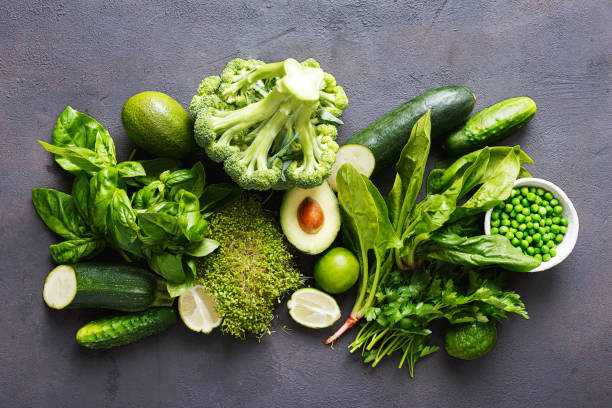If you’re here, pondering the question “Can Dogs Eat Veggie Chips?” chances are you’re a devoted pet owner with a genuine concern for your furry friend’s well-being. The world of dog nutrition can be as intricate as it is fascinating, and your curiosity reflects a commendable commitment to providing the best for your canine companion.
As a seasoned veterinary professional with years of experience in the field, I understand the intricacies of pet nutrition. The quest for wholesome and safe treats for our dogs is a common concern, and veggie chips have emerged as a topic of interest.
Drawing upon my extensive knowledge of veterinary medicine and pet nutrition, I am well-equipped to provide you with insights that go beyond generic advice. I’ve witnessed the evolution of pet dietary trends and can offer a nuanced perspective on whether veggie chips align with the dietary needs of our canine companions.
If you’re seeking a definitive answer to the question of whether dogs can eat veggie chips, you’ve come to the right place. This article is not just a straightforward response; it’s a comprehensive guide crafted with care and expertise.
Dogs can eat veggie chips, but with caution. While some vegetables like sweet potatoes and carrots can be a healthy and safe treat when prepared appropriately, others may contain seasonings or oils harmful to dogs. It’s crucial to avoid ingredients like onions, garlic, and excessive salt.
Understanding Veggie Chips

Understanding the intricacies of veggie chips is pivotal for conscientious dog owners. As a seasoned veterinary professional, I aim to shed light on the types, ingredients, and nutritional aspects of these snacks to help you make informed decisions about your furry friend’s diet.
Types of Veggie Chips Available in the Market
Veggie chips have gained popularity in recent years, offering a seemingly healthier alternative to traditional potato chips. In pet stores and supermarkets, you’ll find a variety of options designed for human consumption.
However, it’s crucial to discern which types are safe for dogs. Common variations include sweet potato, beet, and kale chips. While these may sound appealing, not all veggie chips are created equal. Some may contain additives or seasonings that could be harmful to our canine companions.
Common Ingredients in Veggie Chips
Delving into the ingredients is essential to assess the suitability of veggie chips for dogs. Manufacturers often use dehydrated or baked vegetables to create these crunchy snacks.
However, the devil lies in the details, as certain additives like salt, garlic, or onion powder, commonly found in human-oriented veggie chips, can pose risks to dogs.
It’s imperative to scrutinize labels and opt for products with minimal processing and devoid of harmful substances.
Nutritional Content of Typical Veggie Chips
While veggie chips might seem like a wholesome snack, understanding their nutritional content is vital. These chips often retain some nutrients from the vegetables they’re made of, such as vitamins and fiber. However, the dehydration process can also lead to a concentration of sugars and salts.
My advice is to consider veggie chips as an occasional treat rather than a staple in your dog’s diet. Moderation is key, and ensuring a well-balanced overall diet remains the cornerstone of canine nutrition.
Are Veggie Chips Safe for Dogs?

As we navigate the landscape of dog nutrition, the safety of trendy treats like veggie chips comes into sharp focus.
Key Considerations Before Offering Veggie Chips
Before extending a veggie chip to your canine companion, there are crucial factors to consider. Dogs have unique dietary needs, and what might be a wholesome snack for us doesn’t always translate seamlessly to their nutritional requirements.
Portion control, the absence of harmful ingredients, and an awareness of your dog’s individual sensitivities are paramount. Always consult with your veterinarian before introducing new treats to your dog’s diet to ensure they align with your pet’s health needs.
Potential Health Risks Associated with Certain Ingredients
While the allure of veggie chips lies in their association with healthful vegetables, certain ingredients commonly found in human-oriented varieties can be detrimental to dogs. Onions and garlic, for example, are known to be toxic to dogs, potentially causing digestive distress or more severe health issues.
It’s imperative to scrutinize ingredient lists meticulously, steering clear of any components that may compromise your dog’s health. Opting for plain, minimally processed veggie chips or homemade alternatives can mitigate these risks.
Impact of Additives, Seasonings, and Preservatives
The world of commercial veggie chips often involves a myriad of additives, seasonings, and preservatives. For dogs, however, these can be more than just flavor enhancers. Additives like salt and certain seasonings may lead to sodium imbalances or allergic reactions in our furry friends.
Similarly, preservatives can have varying effects on different dogs. As a conscientious pet owner, it’s crucial to be aware of these potential impacts and choose veggie chips with minimal additives, or better yet, opt for natural, homemade alternatives.
Nutritional Value for Dogs

Navigating the delicate balance of providing nutritious and safe treats for our dogs involves a comprehensive understanding of their dietary needs.
In this section, drawing on my veterinary expertise, we’ll delve into the nutritional landscape of veggie chips, examining how their content aligns with the dietary requirements of our canine companions.
Comparison of Nutritional Needs for Dogs and Veggie Chip Content
Dogs, being omnivores, have distinct nutritional needs compared to humans. While veggie chips may seem like a healthy snack choice, it’s crucial to assess how their nutritional profile matches up with what dogs require.
Vegetables are undoubtedly beneficial for dogs, providing essential vitamins and fiber. However, the processing involved in creating veggie chips can alter their nutritional composition.
Understanding this dichotomy helps pet owners make informed decisions, ensuring their dogs receive the right balance of nutrients.
Benefits and Drawbacks of Feeding Veggie Chips to Dogs
The benefits and drawbacks of incorporating veggie chips into a dog’s diet require careful consideration. On the positive side, certain vegetables used in veggie chips can offer valuable nutrients and antioxidants.
However, drawbacks may arise from additives, seasonings, or even the inherent nature of some veggies, such as high oxalate content in certain leafy greens.
As a responsible pet owner, it’s essential to weigh these factors, opting for veggie chips that align with your dog’s dietary needs while minimizing potential risks.
Moderation and Portion Control
As with any treat, moderation is key when it comes to offering veggie chips to dogs. While these snacks can contribute to a varied and enjoyable diet, excessive consumption may lead to imbalances or unwanted health effects.
Incorporating veggie chips as an occasional treat, alongside a well-balanced and nutritionally complete diet, ensures that dogs receive the benefits without compromising their overall health.
Pet owners should exercise vigilance in monitoring portion sizes, considering their dog’s size, weight, and individual health conditions.
Common Vegetables in Veggie Chips

Exploring the array of vegetables used in veggie chips offers insight into their suitability for canine consumption.
As a seasoned veterinary professional, I aim to dissect the spectrum of vegetables commonly found in these snacks, distinguishing between those that are dog-friendly and those that may pose risks.
Additionally, I’ll delve into safe preparation methods to ensure that veggie chips can be enjoyed by our furry companions without compromising their health.
Analysis of Dog-Friendly Vegetables
Certain vegetables shine as wholesome additions to a dog’s diet, whether fresh, cooked, or in chip form. Sweet potatoes, for example, are rich in beta-carotene and dietary fiber, making them a popular choice for homemade or commercially available veggie chips.
Similarly, carrots boast vitamins A and K, promoting healthy vision and immune function. By selecting veggie chips made from these dog-friendly vegetables, pet owners can offer their furry friends a nutritious and enjoyable snack option.
Identifying Vegetables That May Be Harmful to Dogs
While many vegetables offer health benefits for dogs, others may harbor hidden dangers. Onions and garlic, commonly used in human-oriented veggie chips, contain compounds that can cause oxidative damage to canine red blood cells, leading to anemia and other serious health issues.
Additionally, vegetables from the nightshade family, such as tomatoes and bell peppers, may cause digestive upset or allergic reactions in some dogs. Pet owners must exercise caution and avoid veggie chips containing these potentially harmful ingredients.
Preparation Methods for Safe Consumption
Ensuring the safety of veggie chips for dogs extends beyond ingredient selection to include preparation methods. Homemade veggie chips offer pet owners greater control over the ingredients and cooking process, minimizing the risk of harmful additives or contaminants.
When preparing veggie chips for canine consumption, opt for simple cooking techniques such as baking or dehydrating, avoiding excessive oil or seasoning. By prioritizing safety in the preparation of veggie chips, pet owners can provide their dogs with a wholesome and enjoyable snacking experience.
Signs of Allergies or Sensitivities

While veggie chips may seem like a delightful and health-conscious treat for our canine companions, being attuned to signs of allergies or sensitivities is paramount.
In this section, I, as a seasoned veterinary professional, will guide you through recognizing potential reactions, the steps to take if an allergic response is suspected, and the importance of seeking professional advice for your dog’s well-being.
Symptoms to Watch for in Dogs After Consuming Veggie Chips
Despite our best intentions, dogs may exhibit symptoms of allergies or sensitivities after consuming veggie chips. Watch for signs such as itching, redness, or swelling of the face, paws, or ears, as these could indicate an allergic reaction.
Gastrointestinal symptoms like vomiting or diarrhea may also manifest. Behavioral changes, such as restlessness or lethargy, are additional indicators that something might be amiss. It’s crucial for pet owners to be vigilant and promptly address any unusual reactions by ceasing the treat and monitoring the dog closely.
Steps to Take if an Allergic Reaction is Suspected
If you suspect your dog is experiencing an allergic reaction to veggie chips, swift action is key. Immediately cease offering the treat and remove any remaining chips from their reach.
Provide access to fresh water to help flush out potential irritants. In cases of mild symptoms, observe your dog closely to ensure the reaction subsides.
However, if the symptoms persist or worsen, seeking prompt veterinary attention is imperative. Allergic reactions can escalate rapidly, and professional intervention ensures the best outcome for your pet.
Consultation with a Veterinarian
In matters of canine health, the expertise of a veterinarian is irreplaceable. If you observe any signs of allergies or sensitivities in your dog after consuming veggie chips, consulting with a veterinarian is paramount.
Veterinary professionals can conduct thorough examinations, perform allergy tests if necessary, and provide tailored advice based on your dog’s health history.
This personalized approach ensures that any underlying issues are addressed, and future dietary choices align with your dog’s unique needs.
Homemade Veggie Chips for Dogs

Embarking on the journey of crafting homemade veggie chips for your canine companion not only allows for a delightful bonding experience but also ensures control over the ingredients.
In this section, I, as a veterinary professional with extensive experience, will guide you through DIY recipes using dog-friendly vegetables, safe preparation methods, and the importance of ensuring the absence of harmful ingredients in these homemade treats.
DIY Recipes Using Dog-Friendly Vegetables
Creating homemade veggie chips for your dog can be a rewarding endeavor. Opt for dog-friendly vegetables like sweet potatoes, carrots, or zucchini as the base for your recipes. These vegetables offer a plethora of nutrients beneficial for your dog’s health.
Simple slicing or cutting them into chip-like shapes and sizes prepares the foundation for your DIY dog treats. Experimenting with various dog-approved vegetables allows for customization, catering to your pet’s preferences and nutritional needs.
Safe Preparation Methods and Cooking Techniques
The key to crafting safe and nutritious homemade veggie chips lies in employing suitable preparation methods and cooking techniques. Baking or dehydrating are preferable over frying, as these methods retain the nutritional value of the vegetables without introducing unnecessary fats.
Additionally, minimal seasoning or using dog-safe herbs like parsley can enhance flavor without compromising safety. Consistency in chip thickness ensures even cooking, resulting in a batch of homemade treats that are both delicious and health-conscious.
Ensuring the Absence of Harmful Ingredients
The allure of homemade veggie chips lies in the ability to curate treats without the inclusion of harmful ingredients. Avoid incorporating seasonings like garlic, onions, or excessive salt, as these can pose risks to your dog’s health.
Scrutinize the ingredient list, and opt for organic produce when possible to minimize exposure to pesticides. By prioritizing simplicity and transparency in your homemade veggie chip recipes, you guarantee a wholesome and safe snacking experience for your furry friend.
Alternatives to Veggie Chips

Diversifying your dog’s snack options beyond veggie chips opens up a world of nutritious and satisfying alternatives.
In this section, I, as a veterinary professional, will guide you through exploring healthy and dog-safe snack options, considering commercial treats designed for nutritional balance, and seamlessly integrating fruits and vegetables into your dog’s diet for a well-rounded and enjoyable culinary experience.
Healthy and Dog-Safe Snack Options
Expanding your dog’s snack repertoire involves introducing wholesome alternatives that cater to their nutritional needs. Consider options such as plain air-popped popcorn, which is low in calories and a source of fiber.
Another excellent choice is plain rice cakes or slices of apple, both providing a satisfying crunch without compromising on nutrition. Before offering any new snack, ensure it aligns with your dog’s dietary requirements, and always introduce new treats gradually to monitor for any adverse reactions.
Commercial Dog Treats Designed for Nutritional Balance
Commercial dog treats specifically formulated for nutritional balance offer convenience without compromising on your dog’s health. Opt for treats that prioritize real meat or high-quality protein sources as the primary ingredient.
Look for options free from artificial additives, excessive salt, or sugar. These treats are often crafted to meet specific dietary needs, ensuring that your dog receives essential nutrients while enjoying a tasty reward. Always check the ingredient list and choose treats aligned with your dog’s health requirements.
Integrating Fruits and Vegetables into a Dog’s Diet
Beyond dedicated snacks, seamlessly integrating fruits and vegetables into your dog’s regular diet contributes to overall health and well-being. Offer bite-sized pieces of dog-friendly fruits like blueberries, watermelon, or banana as occasional treats.
Incorporate vegetables such as green beans or steamed carrots into their meals for added nutrients and variety. This approach not only provides a nutritional boost but also fosters a positive relationship between your dog and their food.
Consultation with a Veterinarian

Amidst the plethora of dietary options available for dogs, the guidance of a veterinary professional serves as an invaluable compass.
In this section, I, as a seasoned veterinary expert, will underscore the importance of seeking professional advice, emphasize the significance of customizing diet plans based on individual dog needs, and advocate for regular health check-ups and dietary adjustments to ensure optimal well-being for our beloved canine companions.
Importance of Seeking Professional Advice
Navigating the complexities of canine nutrition warrants the expertise of a veterinarian. Seeking professional advice ensures that dietary choices align with your dog’s specific health needs and dietary requirements.
Veterinarians possess the knowledge and experience to offer tailored recommendations, taking into account factors such as age, breed, weight, activity level, and any underlying health conditions. By consulting with a veterinarian, pet owners can make informed decisions that prioritize their dog’s health and longevity.
Customizing Diet Plans Based on Individual Dog Needs
Every dog is unique, and their dietary needs should reflect this individuality. A veterinarian can customize diet plans to address specific concerns or health goals, whether it’s managing weight, addressing food allergies, or supporting optimal growth and development.
By tailoring diet plans based on individual dog needs, veterinarians empower pet owners to provide personalized nutrition that fosters overall health and well-being. Regular communication with a veterinarian ensures that diet plans evolve alongside your dog’s changing needs over time.
Regular Health Check-ups and Dietary Adjustments
The journey towards optimal canine nutrition is a dynamic process that requires ongoing monitoring and adjustments. Regular health check-ups provide opportunities for veterinarians to assess your dog’s overall health status and nutritional adequacy.
Based on these evaluations, dietary adjustments may be recommended to address emerging concerns or optimize health outcomes. By prioritizing regular health check-ups and dietary adjustments, pet owners demonstrate a commitment to their dog’s long-term health and happiness.
Final Thoughts: Can Dogs Eat Veggie Chips?

Dogs can eat veggie chips in moderation, provided they are made from dog-friendly vegetables, free from harmful additives like onions or garlic, and prepared using safe cooking methods.
While some vegetables, like sweet potatoes or carrots, offer nutritional benefits to dogs, it’s essential to avoid ingredients that may be toxic or cause digestive upset.
Homemade veggie chips prepared with care can be a wholesome and enjoyable occasional treat for dogs, but pet owners should always consult with their veterinarian to ensure the snacks align with their dog’s individual dietary needs and health conditions.
Recap of Key Points
Throughout this comprehensive guide, we’ve delved into the nuances of offering veggie chips to our canine friends.
From understanding the types and ingredients to assessing nutritional content, exploring safety considerations, and venturing into alternatives, the key takeaway is the importance of a nuanced and informed approach to canine nutrition.
Recognizing the specific needs of each dog and the potential risks associated with certain ingredients lays the foundation for responsible pet ownership.
Significance of Informed Decision-Making
In the realm of dog nutrition, informed decision-making emerges as the linchpin. Pet owners play a pivotal role in the health and happiness of their dogs, and this responsibility is best fulfilled through education and vigilance.
Being aware of the nutritional needs, potential risks, and individual sensitivities enables pet owners to make choices that align with their dog’s unique requirements.
A collaborative partnership with a veterinarian further enhances the capacity for informed decision-making, ensuring that every dietary choice contributes to the overall well-being of our furry companions.
Encouraging a Balanced and Safe Approach to Dog Nutrition
As we navigate the diverse landscape of dog nutrition, the importance of balance and safety cannot be overstated. Whether considering veggie chips, homemade treats, or commercial options, the key lies in moderation, variety, and a keen eye for potential allergens or harmful ingredients.
By approaching dog nutrition with a balanced mindset, incorporating a mix of healthy alternatives, and actively seeking professional guidance, pet owners can foster an environment that nurtures their dog’s health and longevity.









